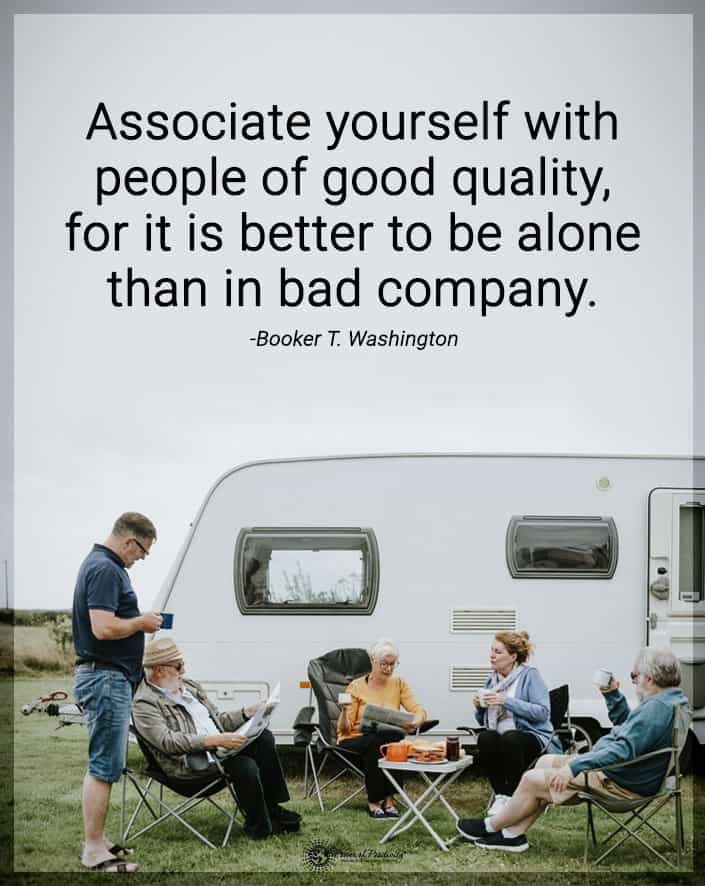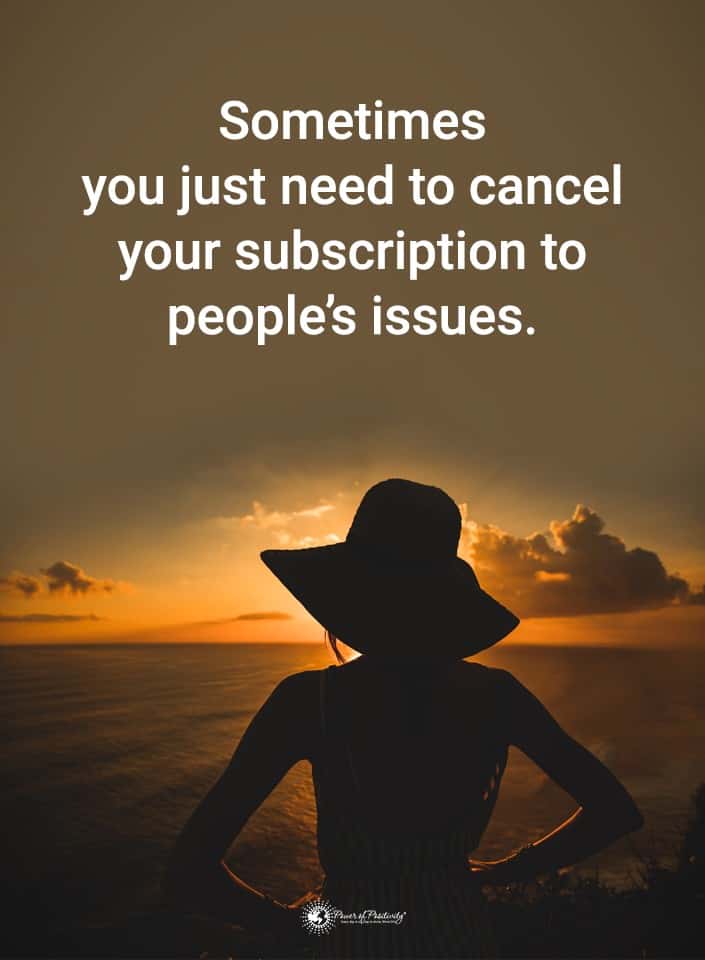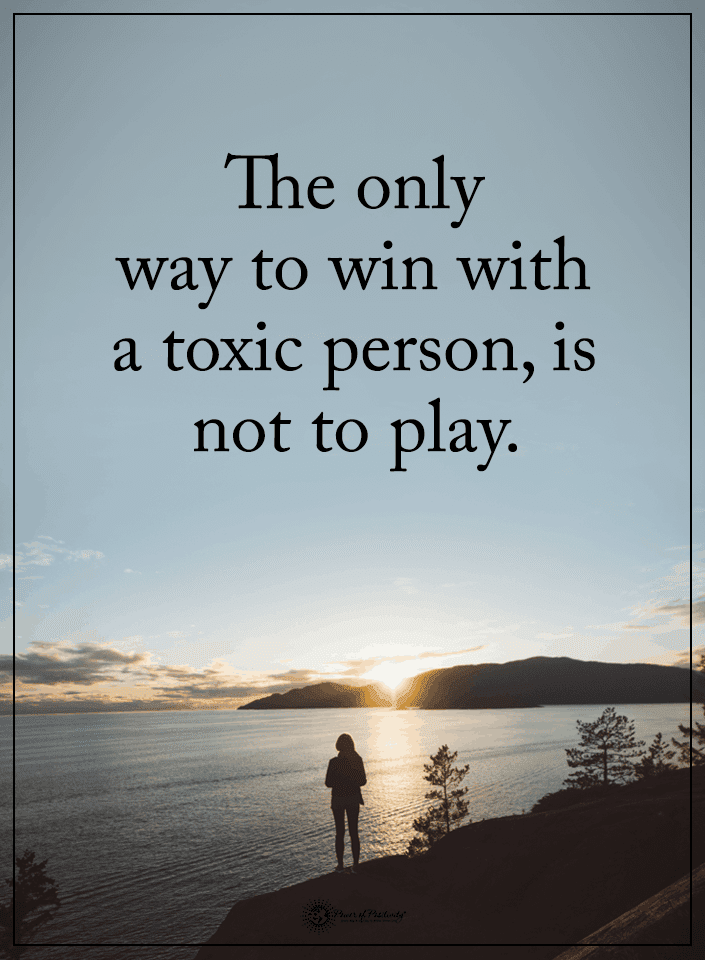Emotions are one thing that humans have yet to master, especially when they’re dealing with a toxic person. Humanity has developed so that space travel is attainable; nevertheless, the soul remains a mystery. Even though the soul is regarded mainly as a philosophical concept, it still seems to be involved in many people’s decisions. That could explain why we seem to keep toxic people around us, even though logically, we know that’s not the best decision.
Most people can empathize with the feeling of wanting to keep someone around, even though you know they’re not good for you. This often happens in romantic relationships. And, young people are prone to making the mistake of falling in love with the wrong person. You’ve probably been that gullible teenager who believed true love would prevail. But toxic relationships are something much more common than they might seem.
These relationships aren’t just romantic ones. They are also platonic, like friendships, work relationships, acquaintances, etc. And they aren’t just the relationships in which one person is an abuser. Toxic behavior can quickly become abusive, but they aren’t always one-sided. In many unhealthy relationships, all parties involved act in harmful ways to others. Keeping a toxic person in your life will only hold you back and disallow you from finding true happiness.
Three Signs It’s Time to Release a Toxic Person
Do you see these red flags in your relationship?
1. You Can’t Communicate Well With A Toxic Person
Communication isn’t as easy as exchanging words and hoping the other person understands. It’s about how people frame a piece of information in other to send the right message. It’s about how willing people are to listen to each other. In simpler terms, communication is a two-way street. In a relationship, especially a romantic one, you need to take it one step further, but many people forget to be kind, proactive and listen to others when they communicate.
This leads to toxic communication patterns. There are four primary patterns: criticism, defensiveness, stonewalling, and contempt. Criticism is probably the most common one, but it can become very toxic quickly. Criticizing someone seems like a very normal thing to do. And that’s because you’ve heard criticisms thrown around all your life. That doesn’t mean you can’t express that you have a problem in a relationship. But there’s a difference between a complaint and criticism.
But when people start essentially throwing insults on each other’s faces, that’s when it gets toxic. Contempt works similarly. While criticisms are about attacking someone’s character, personality, or skills, contempt is more about showing disrespect. It’s usually passive-aggressive behavior, but it has similar effects in the long term as criticisms. They just hurt the other person without offering a solution to the problem.
And then there are the other two toxic behaviors, defensiveness and stonewalling, which are reactions to criticisms and contempt, respectively. When someone is constantly bombarded with complaints, they start being insecure and hurt. That’s when they will begin to act defensively in an attempt to minimize the pain caused by the criticisms. It’s a form of self-protection, but it’s still toxic behavior. This makes people less interested in listening to what the other has to say.
Defensive people are usually more focused on proving their innocence than solving problems. Stonewalling is similar, with one key exception. It does not focus on shifting the blame or getting rid of it. In fact, it isn’t even about guilt. It’s a response to contempt. Again, it acts as a self-defense mechanism.
People engaging in stonewalling tend to close off, and they do anything they can to withdraw from any interaction. It’s possible that this person will stop responding altogether, or they’ll only talk to you as long as the conversation is light. People can be defensive and stonewall you without these patterns responding to anything. But these behaviors are usually reactionary.
2. They Aren’t Supportive
In a relationship, a certain level of support is expected. For example, a healthy relationship with a friend means that you can rely on them to hang out when you’re feeling down. In a healthy romantic relationship, it’s normal to expect your partner to help you achieve your dreams. Of course, supporting someone else has its limits. Your partner can’t sacrifice themselves so that you can achieve your goals. But expecting them to be the ones making dinner if you work more hours than them isn’t unreasonable.
Unfortunately, when dealing with a toxic person, you won’t get much support. If a friend, family member, or partner never does anything to help you out, that’s a sign that they probably don’t care if you succeed. That means they aren’t attached to you for who you are inside. For example, even if a partner expresses that they love you, they probably don’t care that much if they don’t show it. Not only that, but unsupportive people often hold you back.
They don’t understand why you can’t always be with them. An unsupportive friend will probably expect you to answer the phone whenever they have a problem, but they won’t do the same for you. Toxic people expect support from you and get mad if you don’t offer it. But they rarely give you the same consent they demand. They are probably holding you back and forcing you to make unhealthy sacrifices so that you can maintain a relationship.
3. They Exhibit Controlling Behaviors
It’s important to share information with the people you have connections with. The stronger the bond is, the more personal the information will be. Telling your partner where you are going is one thing. But them demanding you send them pictures with you holding a fork in your head so they can be sure you aren’t lying is not acceptable. In most cases, the controlling behaviors won’t even be that obvious.
They might ask one too many questions about who you are hanging out with. They might offhandedly mention that they don’t like one of your friends. Slowly, they might start getting mad if you don’t text them enough or go out a lot. Maybe they comment on your purchases or try to make you financially dependent on them. And these behaviors get worse and worse as time goes on. Sometimes, it might even become psychological, emotional, or physical abuse.
The easiest way to spot a controlling person is by seeing if they always insist on doing things their way. They will act that way even if they know their way is objectively worse than yours. And they do it just because they have an innate need to control everything. They are also the people who never accept that they are to blame and are very unpredictable. They often lie, even if they risk being caught in that lie.
Three Ways to Move on from a Toxic Person
Read these three tips for when it is time to release someone from your life.
1. Don’t Expect Closure
Moving on from any relationship is hard, even if you get closure. Even when you have all your questions answered and your slate is clean, you still miss the person you left behind. But it’s even harder to move on when you don’t have that closure. And most toxic people won’t bother giving you the peace of mind you need.
Because they don’t know how to communicate, or they genuinely don’t care about how you feel, they will probably refuse to have a mature conversation. They won’t attempt to tell you what went wrong, what bothered them. And they definitely won’t offer you a sincere apology and then just let you go.
When dealing with toxic people, you need to cut all ties and give yourself closure. Forgive yourself for how that relationship made you act. Understand that you made the best decision for yourself, and you don’t owe them anything. And always keep in mind that your future will be much better without them.
2. Cut Off Contact From The Toxic Person
A toxic person will probably refuse to let you go and try to pressure you to come back at all costs. They are also likely to know how to manipulate, gaslight, or guilt-trip you into doing whatever they want. Because of that, it’s best to cut all ties with them when you decide to move on. Otherwise, you risk rekindling your connection with them, and you will likely fall back into the same unhealthy pattern you were in before.
3. Focus On Loving Yourself
If you’ve had to deal with a toxic person for a while, you’ve probably had to make sacrifices without getting anything in return. You’ve been so focused on caring for them that you forgot how to care about yourself. That’s why one of the first things you need to do when leaving a toxic person is learn to love yourself again.
You need to care for yourself mentally, emotionally, and physically. Going to a therapist might be the first step in rebuilding your life. But it’s also essential to take things slow and focus on your well-being for a while. Take some rest days, exercise, meditate, read, eat healthily, or watch a show. Every tiny thing you do for yourself will help you heal the wounds created by the relationship’s toxicity.
Final Thoughts on Signs It’s Time to Release a Toxic Person and How to Move Forward
People love and care because of many reasons. They care for their parents because they are the people who raised them. They care for their co-workers because they see them every day. And they even fall in love with the wrong person for reasons that don’t make any logical sense. But, because we care, we also risk allowing toxic people to come into our lives.
When it comes down to it, we all know who the toxic people in our lives are. They are the ones who make us feel insecure, scared, and even unlovable. They are the ones who we would give everything for. However, they don’t give us much in return. They are the ones who make us act in unhealthy ways, even if we are good people on the inside. And it would be best if you let these people go. Cut all ties with them and move on. Don’t ask for closure. Just leave. Give yourself the closure you need, and learn to care for yourself again.

















 Community
Community

